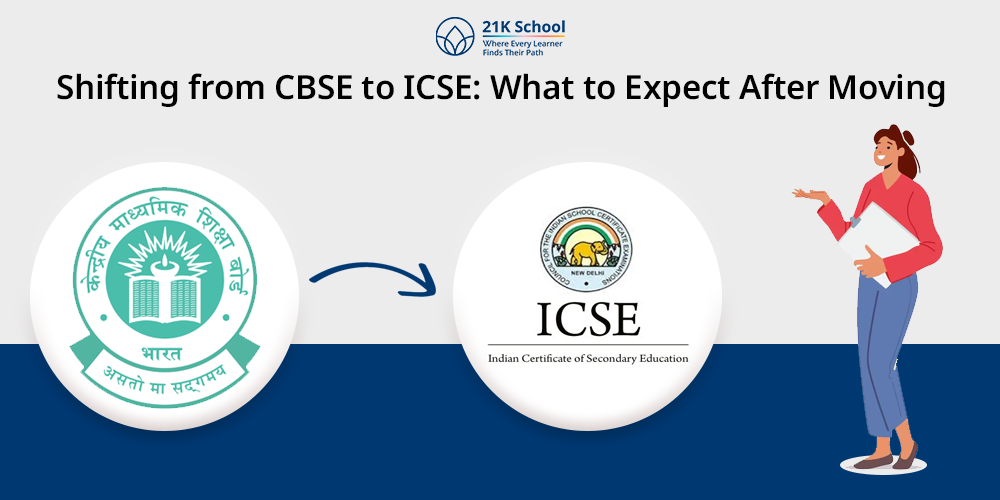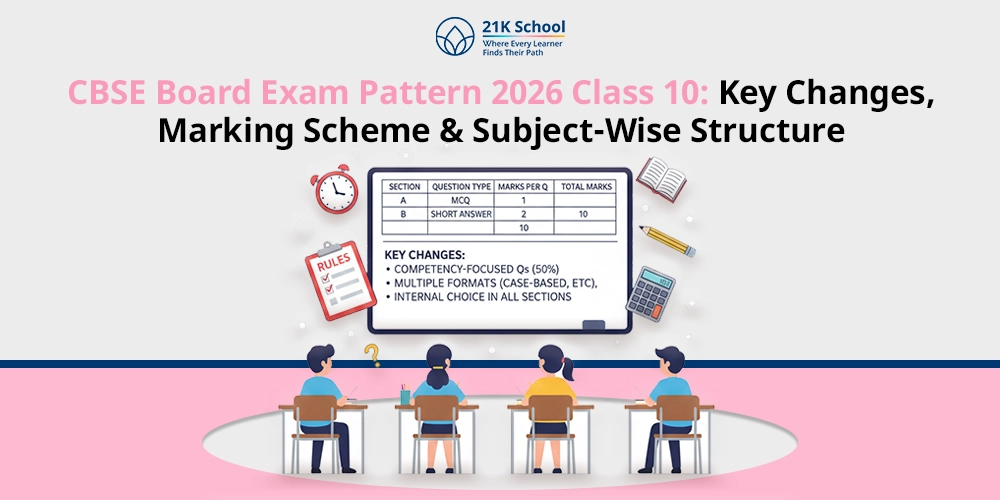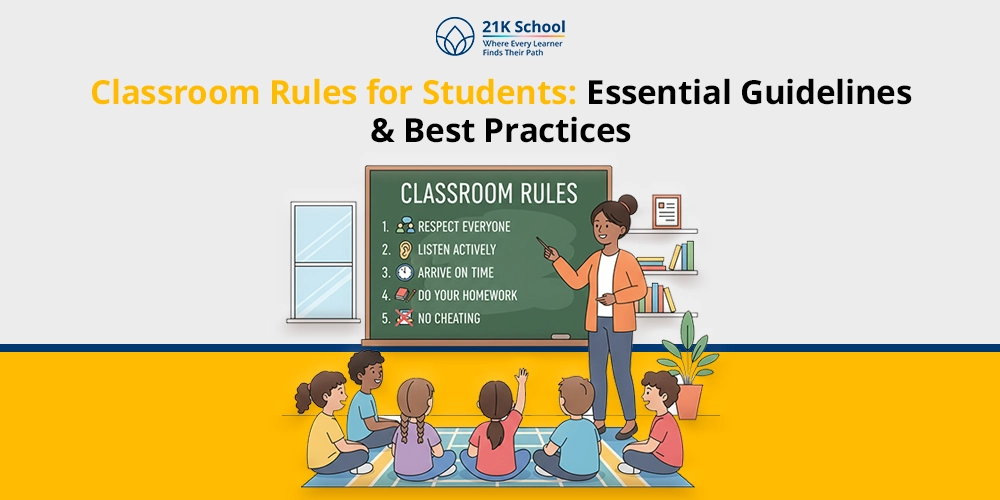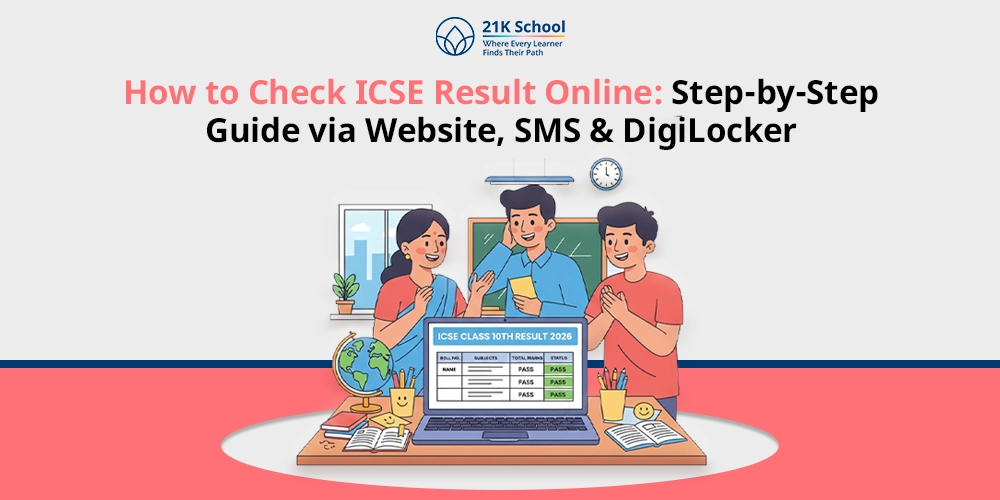
Shifting from CBSE to ICSE can be an overwhelming process. But the transformation can take learners towards an improvement journey.
There are a lot of parents and kids who choose ICSE over CBSE. This can be due to various reasons such as curriculum, language etc.
For example a learner seeks a more detailed curriculum, a stronger focus on language skills or simply re-locating to a new state where ICSE is more effective for growth.
How to shift from CBSE to ICSE comes with questions such as:
- Which syllabus is more tough?
- Can I adjust with different teaching mythologies?
- Will kids be able to adjust easily with ICSE?
Let’s understand what to expect after shifting from CBSE to ICSE, comparing the key differences between the both boards, and useful tips to make the transition smoother both for students and parents.
Table of Contents
Tips for a Smooth Shifting from CBSE to ICSE
Switching is sometimes daunting and needs guidance. For a smooth shifting from CBSE to ICSE learners need to consider various tips such as:
- Understand the ICSE Curriculum and Assessment
Before switching parents and learners must understand the ICSE curriculum and assessment to ensure that the child is able to adapt to the new environment with positivity.
- Enhance Your Learning Strategies
As we know all boards have their own way and pace of education which needs to match. Students need to enhance their learning strategies for better performance after shifting from CBSE to ICSE.
- Focus on English Language Proficiency
As per research, ICSE boards focus more on English language proficiency as compared to CBSE which can consider enrollment in English classes.
By reading different kinds of novels, newspapers, and journals can be helpful.
Learners can also watch English educational shows and take part in various debates and essay competitions.
Explore top ways to improve English language while learning or creative English activities for students to include fun in learning.
When is The Best Time for Shifting from CBSE to ICSE?
As per parents and learners the ideal time to enroll in ICSE is generally between Classes 2 and 6.
If a switch is crucial for learners then it’s good to do it before Grade 9. Due to the syllabus of Classes 9 and 10 are linked and important.
Shifting after Class 10 or before Class 11 is also possible for learners. But one needs to carefully go through the syllabus and exam pattern changes.
Here’s a detailed list of grades showcases the best time to switch from CBSE to Indian Certificate of Secondary Education:
- Primary/Pre-Primary: Primary or pre-primary is the ideal time to transition. A young kid is easily adapted to the Indian Certificate of Secondary Education curriculum’s depth and focus on languages and humanities.
- Grade 8 or Before 9: Changing a recognized board in class 8th or before class 9th is easier. Learners can adjust because the syllabus becomes more relatable.
- After Grade 10 or Grade 11: Shifting from CBSE to ICSE is possible in grade 11 or after the 10th grade. However, for students it can be more challenging or difficult due to the specialized nature of higher secondary education.
- Grade 10 and 12: Grade 10 and 12 is the crucial grade for every learner and shifting from one board to another is not advised during these classes as they are registration years for board exams.
Benefits of Shifting from CBSE to ICSE
Shifting from CBSE board to ICSE had several benefits such as comprehensive curriculum holistic development, global recognition etc.
Here’s a more detailed breakdown of benefits of shifting from CBSE to ICSE:
1. Comprehensive Curriculum
A comprehensive and balanced curriculum in ICSE is a holistic educational approach. It provides a broad range of knowledge and skills across multiple disciplines, fostering well-rounded development in students.
2. Emphasis on English Language Proficiency
Having a strong focus on the English language can be beneficial to move from CBSE to ICSE.
This ensures learners to improve their efficiency in speaking, writing and thinking skills.
3. Holistic Development
Holistic development means overall growth of learners in academics.
Switching supports academic growth by boosting language skills, thinking ability and preparing them for enrollment in college.
4. Global Recognition
ICSE is a famous board which is globally recognised. Those students who want to build their future abroad for higher education shifting can be advantageous.
Also explore various advantages of the ICSE board for learners.
Eligibility Criteria for Shifting CBSE to ICSE
To shift from a Central Board of Secondary Education to an Indian Certificate of Secondary Education school, learners need to meet the specific eligibility criteria.
Eligibility of the ICSE board and the school requires many certificates like transfer certificate, migration certificate from the previous board etc.
Here everything you need to know:
- While shifting from CBSE to ICSE after class 10 or in 11 one must need CBSE Class 10 and obtain the necessary documents. Like the student’s marksheet from the previous board is also needed.
- Shifting to a different board might be considered in any class if parents are relocating due to various reasons like health transfer etc.
- A transfer certificate from the previous school is required. However, the transfer certificate and marksheet should be countersigned by the educational authorities of the previous board.
- Sometimes post-facto approval is required.
Comparison Between CBSE and ICSE
CBSE and ICSE are popular. The Board of India has many advantages for learners.
Central Board of Secondary Education, is known for its strong curriculum and competitive exam preparations.
While Indian Certificate of Secondary Education great focus on languages, arts, and practical application of knowledge. Here’s a detailed comparison tables:
| S.No. | Perticulars | CBSE | ICSE |
| 1. | Curriculum and Focus: | CBSE is more theoretical, science and math-oriented. | ICSE is balanced with equal weight on arts, science, and humanities. |
| 2. | Difficulty Level: | It is moderate and suitable for average learners. | It is more difficult and demands deep understanding. |
| 3. | Language and Literature: | Emphasis on functional English | Strong focus on grammar, literature, and expressive skills |
| 4. | Assessment and Evaluation: | Objective, marks-based with fewer internal assessments | Detailed internal and external assessment system |
| 5. | Competitive Exams: | Aligned with national competitive exams (NEET, JEE) | Good foundation but not specifically aligned |
Challenges of Shifting from CBSE to ICSE
Switching from CBSE to ICSE has a lot of benefits. However it presents several challenges such as a broader syllabus, increased subject load, focus on English etc.
Let’s explore each challenge in depth to get proper solutions:
1. Difficulty Adjusting to a New Curriculum
Difficulty adjusting to a new curriculum such as adjusting to a more demanding syllabus, a greater emphasis on English language and literature etc.
With time students need to adapt to each difficulty. However, they can take help from parents and facilitators.
Also, understand what are the benefits of learning English in 21st century education.
2. Increased Workload
After shifting from CBSE to ICSE learners the challenges like high workload.
It happens because of the ICSE board’s more extensive and in-depth syllabus, different evaluation methods, and the need to adapt to a new learning style.
It can be resolved by proper planning, execution and getting motivated for improvised academic achievement.
3. Grading System
The grading system is one of the most important parts of any board. Both CBSE and ICSE have their own grading technique.
In CBSE grading system is done through CGPA also known as Cumulative Grade Point Average.
While in ICSE, a percentage-based system is used for results.
Conclusion
Shifting from CBSE board to ICSE board is an important decision for both parents and learners. One must explore pros and cons of the CBSE board before switching to ICSE.
While making the decision one must consider various features of ICSE like the child’s learning style, academic strengths and long-term goals.
The transition is sometimes a difficult task due to curriculum changes, increased academic expectations etc. However, ICSE has a lot of advantages including that both national and internationally recognized education can be significant.
With the help of parents, learners can become both physically and mentally strong to shift from one board to another.
Before switching remember to align with the students personal aspirations, strengths and future needs.
If ICSE’s depth, structure and language suits your child’s needs, helping them to switch can be a transformative step forward.



